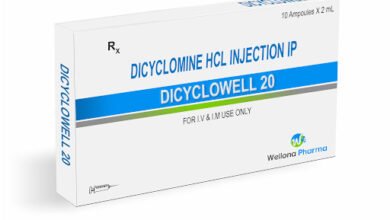Crohn’s Disease Self-Care: 10 Important Tips For Recovery
Living life with Crohn’s disease (CD) can be challenging due to consistent abdominal discomfort and frequent washroom visits. Even daily routine activities can be hampered by the symptoms of these inflammatory bowel diseases. Beyond just the physical symptoms and effects, Crohn’s disease can impact the overall well-being of a person, making their daily life difficult. In this blog, we’ll discuss what a CD is. What is its epidemiology, and what are the diagnostic tests for this?
Additionally, here, you can learn essential strategies for Crohn’s disease self-care, which will help patients manage the complications of this condition.
What is Crohn’s Disease?
Crohn’s disease (CD) and ulcerative colitis (UC) are significant types of inflammatory bowel disease (IBD), which cause inflammations triggered by immune system reactions in the gut. In CD, the inflammation occurs from the inner layers to the outer layers of the gastric and the bowel wall in a patient. It majorly undergoes a distinct pattern of flare-ups and sudden periods of remission in a patient. Symptoms of CD can go from mild to severe forms with time, including fistulas or strictures, if not treated well.
This disease can affect any part of the gastrointestinal tract. In some people, 1/3rd can have inflammation around the small intestine, significantly towards the end of the small intestine called the terminal ileum; 20% of patients have the colon involved, and 50% of patients experience both inflammations simultaneously. There is no permanent cure; the patient feels sudden relief and flare-ups at different times. This gastrointestinal condition can significantly impact the quality of life of a patient.
Crohn’s disease self-care tips at home can help you manage the primary symptoms, which you will read below in the blog!
Also Read: Crohn’s Disease – A Painful Condition
What are the Risk Factors for Crohn’s Disease?
As the causes are unknown, scientists think it might be due to some risk factors that can lead to Chron’s disease. These include:
- Family history of Chron’s disease: Someone is more likely to get the condition if they have a family member with it.
- Autoimmune disorder: Some experts call Chron’s disease an autoimmune disorder. If you don’t know, autoimmunity occurs when our immune system mistakenly attacks the body’s normal cells while defending it against foreign bacteria and viruses, failing to recognize tissues from its own body. So, when the immune system erroneously attacks the digestive tract, this leads to the development of Chron’s disease.
- Environmental factors: Although specific environmental factors that trigger Crohn’s disease are still under investigation, it is thought that exposure to certain infections or pollutants may increase the chances of getting this condition.
- Smoking: There is evidence suggesting cigarette smoking is one of the major causes of developing Chron’s disease. Smoking can worsen symptoms and increase the severity of the condition.
- Age: While anyone can develop Crohn’s at any age, most often it has been found in young people aged between 15-35 years old who suffer from this ailment.
- Ethnicity or Race: Some studies have shown that Chron’s disease is more prevalent among ethnic groups, such as Ashkenazi Jews.
- Infections of the Gastrointestinal Tract: Some studies suggest that some bacterial and viral infections in the GI tract might provoke an inappropriate immune response leading to Chron’s disease in some individuals.
- Food: Eating junk food may be one of the factors responsible for developing Chron’s disease.
- Medications: Research studies have shown that there are certain drugs like nonsteroidal anti-inflammatory drugs (NSAIDs), antibiotics, and oral contraceptives which, when used, increase the risk of getting Chron’s disease and cause worsening of existing symptoms.
Diagnosis of Crohn’s disease
After physical evaluation, doctors usually suggest diagnostic tests to evaluate the condition properly. Standard diagnostic procedures include:
- Diagnostic tests like colonoscopy or endoscopy: Your doctor might suggest blood and stool tests to check for signs and symptoms related to inflammation or infection. A colonoscopy can be recommended, where a thin tube with a camera is used to examine the colon. An upper GIendoscopy may also be performed to look inside your mouth, esophagus, stomach, and small intestine.
- Diagnostic imaging or scans: This could involve a CT scan or an upper GI series, where you drink a special liquid called barium before X-rays are taken to visualize the upper GI tract.
Also Read:How do I know if I have IBD (Irritable Bowel Syndrome)?
10 Important Crohn’s Disease Self-Care Tips
The CD has no cure; therefore, you should consult your doctor before taking any herbs or supplements. This step is crucial to ensure that they won’t interfere with your medications for Crohn’s disease and can treat you effectively. Crohn’s colitis lifestyle tips can help you to manage symptoms and improve your quality of life.
Here are some more Crohn’s disease self-care tips to manage your condition.
1. Notice your Symptoms
You must notice the symptoms if you observe anything unusual with your body. Suppose you feel any discomfort or abnormal issues like gas, bloating, pain in the abdomen, weakness in the body, or blood in your feces. Then, you should report this unusual symptom to the doctor in detail when going for a consultation.
2. Take a Balanced Diet
Managing Crohn’s disease includes a balanced diet along with regular exercise and medication adherence. Dietary alterations can help you find the best approach for managing discomfort symptoms. Certain foods like fruits with outer skin or peel, cruciferous vegetables, dairy products, and sugary or spicy foods may trigger discomfort and flare-up inflammation. Manage yourself to get a balanced and healthy diet, avoiding oils and dairy.
3. Take prescribed medications on time.
Take your medicine as prescribed and follow your regimen as suggested by doctors. Missing some doses or discontinuing medication can increase the severity of symptoms. You can use reminders, write on notepads, and set alarms on your mobiles; all this can help you stay consistent with your medication schedule, ensuring optimal management of your Crohn’s disease.
4. Manage your stress levels effectively.
Try some relaxation techniques in your daily routine; for example, start meditation, you can do yoga for some time, or do deep breathing exercises can play a tremendous role in helping reduce stress and improve your mental well-being. These practices may help a lot in managing disease and mental anxiety as well.
5. Stay Active and Do Mild Exercises
Start by doing a little physical activity, for example, walking or cycling. This can help decrease stress and can help control inflammation. Daily physical activity is essential for managing Crohn’s disease and promotes overall health.
6. Maintain Your Emotional Well-Being
You might seek support from friends, family, or your partner to maintain your emotional well-being and enhance your quality of life. This provides encouragement, understanding, and assistance when needed.
7. Quit smoking cigarettes and chewing tobacco.
Smoking needs to be quitted for treating Crohn’s disease. It will decrease inflammation and minimize recurrent flare-ups of CD. Thus, Crohn’s management requires a healthy lifestyle, including avoiding smoking and tobacco products.
8. Limit alcohol consumption
Avoiding alcohol is crucial in managing Crohn’s disease. Excessive alcohol consumption can exacerbate symptoms and increase the risk of complications. By refraining from alcohol, individuals with Crohn’s can better control their condition and improve their overall health and well-being. It’s important to consult with a healthcare provider for personalized advice on alcohol consumption and Crohn’s management.
9. Vaccinations are a must for CD patients.
Vaccinations are essential to prevent patients from infections, especially those who suffer from diseases like CD or UC. So, it would help if you talked to your doctor about whether you must take vaccinations to prevent yourself from infections.
10. Discuss With Your Doctor Before Family Planning
Suppose you want to start a family or plan to do it shortly, and you are suffering from this inflammatory condition. In that case, having an open discussion with your healthcare professional is essential. He might guide how to cure Crohn’s disease during pregnancy and ensure a perfectly healthy outcome for both the mother and her baby.
Crohn’s Disease Self-Care Diet
When it comes to managing Crohn’s disease self-care diet, there are certain foods you can incorporate to help reduce symptoms and support your overall health.
Foods to Eat
- Steamed or boiled vegetables such as carrots, squash, zucchini, and spinach
- Lean protein such as skinless chicken, tofu, fish, lentils etc
- White rice
- Smooth nut butter like peanut butter or almond butter
- Soft fruits without skin or seeds, such as bananas, applesauce, etc
- Dairy milk alternatives such as soy milk, almond milk, etc
- Clear broths and vegetable soups
- Plain or milk-based oatmeal
- Smoothies
Foods to Avoid
You must Avoid triggering foods having
- High-fat dairy products
- High-insoluble fiber products such as whole grains, raw fruits, and vegetables.
- Spicy or junk foods
- Alcohol-based beverages
- Caffeine-based drinks such as tea and coffee.
- Carbonated drinks, which may contain artificial sweeteners
- processed foods such as pizza, fries
- gluten-containing foods like bread, pasta, and baked goods
Know more in detail: Crohn’s Disease Diet: Foods To Eat And Avoid
Conclusion
Crohn’s disease is a type of primary inflammatory bowel disease, and no complete cure is available for the condition. So, following the 10 important Crohn’s disease self-care tips that we have mentioned in this article and safeguarding your health is crucial. You should consult your doctor for other queries and treatment options. Whenever you notice any abnormal symptoms, talk to your doctor about them and start your treatment as soon as possible.
Frequently Asked Questions
Which type of fiber to add in Crohn’s self-care diet?
You may Include soluble high-fiber fruits only, which digest well and quickly.
Can Crohn’s disease go away by itself?
No, it doesn’t go away itself. It would help if you took proper treatment from your doctor; otherwise, recurrent flare-ups can occur.
Where does Crohn’s affect the most?
Small and large intestines are the most affected parts of the gastrointestinal tract.
What are the symptoms of Crohn’s disease?
Abdominal pain, cramps, fever, fatigue, loss of appetite, etc., are common symptoms of Crohn’s.
Is it possible to prevent Crohn’s disease?
There is no way to prevent Crohn’s disease. But, it would help if you eat balanced diet rich foods, maintain an active lifestyle, to avoid this condition.
Source link
#Crohns #Disease #SelfCare #Important #Tips #Recovery



